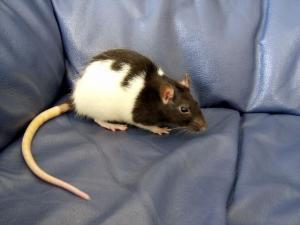Rat-Bite Fever
- posted: Mar. 24, 2015

What You Need to Know About Rat-Bite Fever
Last week, several local news stations ran a story about the tragic death of a Dillsburg infant who contracted Rat-bite Fever after being bitten by a rat raised by the family as food for their pet snakes. While deaths from Rat-bite Fever are rare, this sad story reminds us that they can occur. Many people keep rats as pets or may raise colonies of rats as food for exotic reptiles or work with rats in laboratory settings, but wild rats can also carry this little-discussed disease. Other rodents may also be carriers. Here is what you need to know about Rat-bite Fever to keep you and your family safe.
Rat-bite Fever is caused by bacteria in the Streptobacillus family. These bacteria are present in rat saliva and may be transmitted by handling rodents, being scratched or bitten by infected rodents or by ingesting contaminated food or drink. It cannot be spread from one person to another. While rats and other rodents are often asymptomatic carriers, they occasionally become ill themselves from the bacteria and may develop infected, swollen lymph nodes, arthritis and gangrene.
Symptoms of Rat-bite Fever in people include fever, headache, muscle and joint pain, and sometimes a flat, red rash on the hands and feet. Symptoms typically occur within 2-14 days of exposure to an infected rodent, but may occur up to 21 days later. Rat-bite Fever can be treated with antibiotics such as penicillin, but if left untreated, serious complications such as myocarditis (infection of the heart muscle), meningitis, pneumonia and even death can result.
If you own or handle rats or other rodents, keep yourself safe by wearing gloves and washing your hands after cleaning cages or handling the rats. Avoid contact with wild rodents or areas where rodents may be present such as barns, abandoned buildings, campgrounds, etc. and do not drink milk or water or eat foods that may have come in contact with rodents.
Rat-bite Fever is a rare disease, but it can potentially be very serious if contracted. If you or a family member experience any symptoms of Rat-bite Fever and have known exposure to rodents, make sure to see your healthcare provider immediately and to make him or her aware of any exposure to rats. Symptoms are non-specific and Rat-bite Fever could be overlooked by your doctor if they are unaware of potential exposure.
Location
Patton Veterinary Hospital
425 E Broadway
Red Lion, PA 17356
